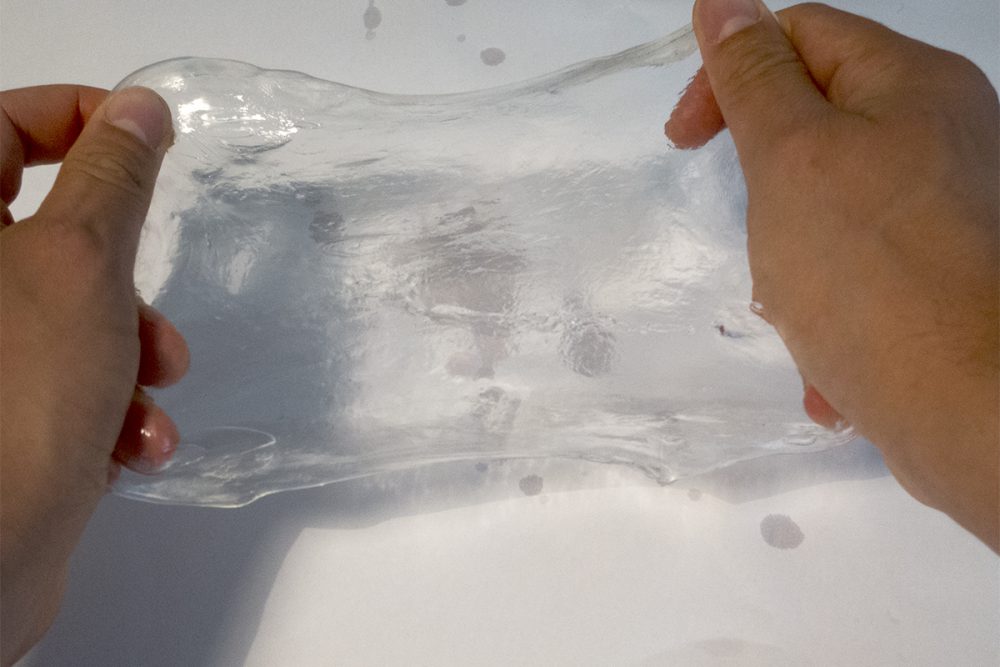a hand-formable plastic material
Polymorph (officially known as Polycaprolactone) is a biodegradable polyester that can be shaped and reshaped infinitely. It has a very low melting point of around 60°C – 62°C but when cool has physical properties of a very tough plastic, similar to nylon. Although fairly expensive it is well suited for 3D modeling, part fabrication, repair of plastic objects, and rapid prototyping where heat resistance is not needed.
Materials and Tools
|
|
1. Soften Plastic material
Pour the water into the pot and heat it up to around 60°C. Turn down the heat when the water is boiling. Slowly pour the polymorph granules into the hot water. Stir if necessary. Once the granules have all become clear and are sticking together, remove the mass from the hot water. Keep the water at around 60°C.
2. Mold Plastic
Mold the granular plastic until it becomes a homogeneous mass. Use the towel to get rid of trapped water. Stretch the plastic into a thin surface.
3. Add pigments
Pour a small portion of the thermochromic pigments into the center of the polymorph sheet. Fold the plastic over the pigments so they are completely enclosed. Then continue molding the plastic. The goal is to mix the pigments thoroughly into the soft material. Once the plastic gets hard, put it back into the water and wait until it becomes malleable again. Try to keep the water temperature below boiling since excessive heat might destroy the thermochromic pigments.
4. Repeat step 3
Repeat the previous step until the plastic has reached the desired color intensity. Since due to the warmth of the material the pigments will most likely turn transparent, the current color can be tested when dipping the plastic into cold water.


















